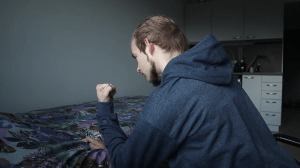If you think you don’t have a digital addiction or that digital devices don’t affect you negatively, you are delusional! Because we are all addicts to a greater or lesser extent. Some people just see it more clearly.
The daily responsibilities that prevent us from overusing our digital devices mask this addiction. However, anyone who has freed up their schedule and finds themselves alone in a room becomes acutely aware of the irresistible pull of the digital world.
You’ll only understand the effects once you’ve been without your devices for a few days. If you use them on a daily basis, you won’t see them objectively.
So how does it have such an insidious effect on everyday life?
- Every morning, when you plan to take an important step towards completing your project, but instead start your day by replying to messages and scrolling through social media, affecting your motivation and the course of your entire day.
- Every night when you plan to do something good for your body and fall asleep earlier, but instead expose yourself to blue light.
- Every time you want to take a break and unwind, but end up stressing yourself out.
- Every time you want to be there for your loved one, but your mind jumps around, sometimes causing conflict due to nervousness or distracted thoughts.
- Every time a brilliant idea hits you and slips away because you didn’t take a moment to write it down.
- Every time you’re about to make a breakthrough in your train of thought that could change your life… but you grab the phone and cut it off.
The fact is, if you’re not living the life of your dreams, or taking the steps you really want to take, your focus is not in your control. Perhaps you’re completely asleep, or maybe you’re just half awake – it’s just that certain processes never complete because your RAM is always occupied by something else at crucial moments.
But because we’re left with a fantasy of a better future, it never seems serious enough, even if you see through it all. Consumption in the present moment feels temporary. Even if today’s time runs out, there’s always tomorrow to do everything you’ve dreamed of.
So it’s as if we’re living in a perpetual bubble. The clock keeps ticking, but hope remains. As we grow older, anxiety grows, as our rational minds remind us that life is finite. But the monkey within us keeps scrolling, gathering momentary pleasures.
Escape seems hopeless. Many years have passed this way, so why should the future be any different?
You’re right—it won’t change unless you change it now. By becoming present and stepping out of this simulation. By setting firm boundaries for the future. By marking at least one digital-free day on your calendar. By keeping your goals in mind every day. And by practising meditation or creating reminders (perhaps even in human form) to increase those moments of presence.
Changing digital habits can be incredibly challenging, but it is possible—especially with the support of someone who has been through it. I personally experienced severe digital addiction for about 20 years, but I broke free.
Here is a quick guide for anyone who is willing to answer a few questions for my research. Thank you!




